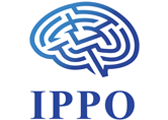Changing the Scenario of Intellectual Property Rights in India
Recently, India has experienced numerous noteworthy improvements regarding Intellectual property rights laws and approach. The Government of India has taken an initiative to enhance the state of IPR Protection in India. Taking after are the brief of the activities taken by the Government of India for the advancement of IPR security:
National Intellectual Property Right Policy 2016: The Cabinet has approved the National Intellectual Property Rights (IPR) strategy on the 12 th of May, 2016 to promote innovation, inventiveness, development, business enterprise and to make a bigger institutional structure to reinforce IPR administration, using the slogan " Creative India, Innovative India." The point is to create awareness about economic, social and cultural benefits of IPRs among all areas of society. The policy sets out the following:
1. IPR Awareness: Outreach and Promotion – To spread awareness about the financial, social and social advantages of IPRs among all segments of society. 2. Generation of IPRs - To encourage the creation of IPRs. 3. Legal and Legislative Framework – To have solid and viable IPR laws, which adjust the interests of rights owners with the broader public interest. 4. Administration and Management – To strengthen and modernize service-oriented IPR administration. 5. Commercialization of IPRs – Gain value of IPRs through commercialization. 6. Enforcement and Adjudication – To reinforce the implementation and adjudicatory systems for fighting IPR infringements. 7. Human Capital Development – To strengthen and grow human resources, establishments for training, educating, and skill development in IPRs.
All the IPR departments brought under One Umbrella: The IPR Policy recommended making the department of industrial policy and promotion (DIPP) the central point for IPRs in India. The administration of the Copyright Act, 1957 from the department of higher education and the Semiconductor Integrated Circuits Layout-Design Act, 2000 from the department of electronics and information technology brought under the DIPP, bringing all the areas of IPR under one umbrella. The Copyright office is now working under the DIPP and we trust that it will perform better under this department and the Copyright Board will be reconstituted soon.
IPR Facilitation for Start-Ups: Start-ups have been perceived as power places of intrinsic however monstrous force of development, innovation and thoughts. The Government of India has propelled the goal-oriented plan 'StartUp India, StandUp India' by declaring action plans and initiatives to bolster new startup businesses. As a major aspect of the strategy, the Government of India has endorsed and begun the plan for encouraging Start-ups Intellectual Property Protection (SIPP) to support their development and inventiveness and advance mindfulness and energize IPR insurance among Start-Ups.
Online Registration of Copyright has been begun: From seventeenth February, 2014 Online Copyright enrollment has been begun by the Government. The upside of online enlistment through "E-documenting office" applications can be recorded at once and place picked by the candidates,along these lines sparing time and cash. Online enlistment office for Trademark and Patent has as of now been begun in the year 2010.
Copyright division has been given a New very much outfitted Premise: Copyright office got another all-around outfitted commence at:
G-30, Super Market, August Kranti Bhawan, Bhikaji Kama Palace, New Delhi-110066
India joined Madrid Protocol to get savvy worldwide trademark enrollment: India on 08th April, 2013 joined the Madrid Protocol which empowered local organizations and business visionaries to acquire practical worldwide trademark enlistment. The Madrid System for the International Registration of Marks offers trademark proprietors a financially savvy, easy to use and streamlined method for securing and dealing with their trademark portfolio globally.
Copyright (Amendment) Act 2012 came into drive: The Copyright (Amendment) Act, 2012 is the most considerable change in the Act. The fundamental purposes behind alterations to the Copyright Act, 1957 incorporate to acquire the Act similarity with WCT and WPPT; to secure the Music and Film Industry and address its worries; to address the worries of the physically impaired and to ensure the interests of the creator of any work; Incidental changes; to evacuate operational offices; and implementation of rights. A portion of the essential corrections to the Copyright Act in 2012 are expansion of copyright security in the advanced environment, for example, punishments for circumvention of innovative insurance measures and rights administration data, and risk of network access supplier and presentation of statutory licenses for cover forms and broadcasting associations; guaranteeing right to get eminences for creators, and music arrangers, select monetary and good rights to entertainers, square with participation rights in copyright social orders for creators and other right proprietors and special case of copyrights for physically crippled to get to any works.
Patent (Amendment) Rule 2016 became effective which for the most part gives: 1. The ideal opportunity for placing application in state of recompense under area 21 has been lessened to 6 months as against prior 12 months regardless of demand for examination documented by candidate is sped up or not. 2. Presently hearings can be led through video-conferencing or varying media specialized gadgets. 3. To encourage IP creation inside developing Indian new businesses biological community, the Government has propelled a few impetuses including decreased authority charges, documenting and arraignment help by empanelled patent and trademark operators and assisted examination of patent applications.
These corrections attempt to streamline the IPR methodology with a vital goal of decreasing the pendency time, giving solid security to the IPR holders and giving different advantages to the candidates. The Amendments are meant to be a get to empowering and innovation agreeable element establishment. Presently Intellectual Property (IP) and rights joined thereto have turned out to be valuable wares and are as a rule furiously ensured.

